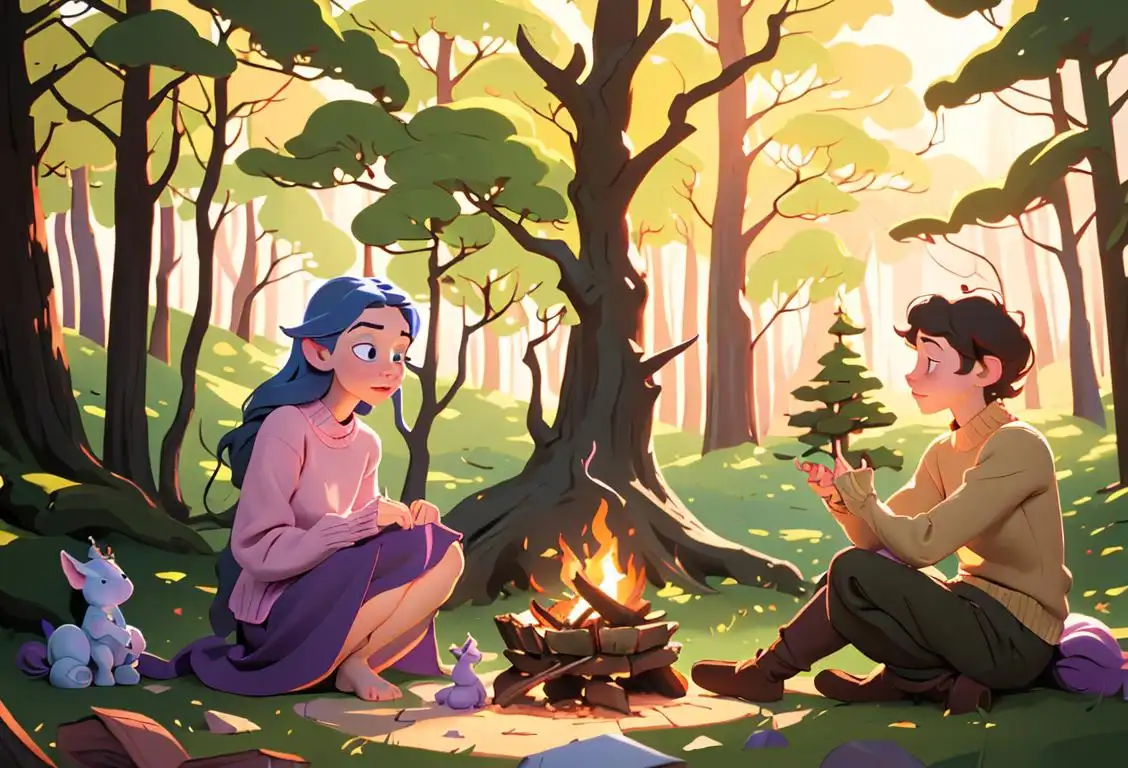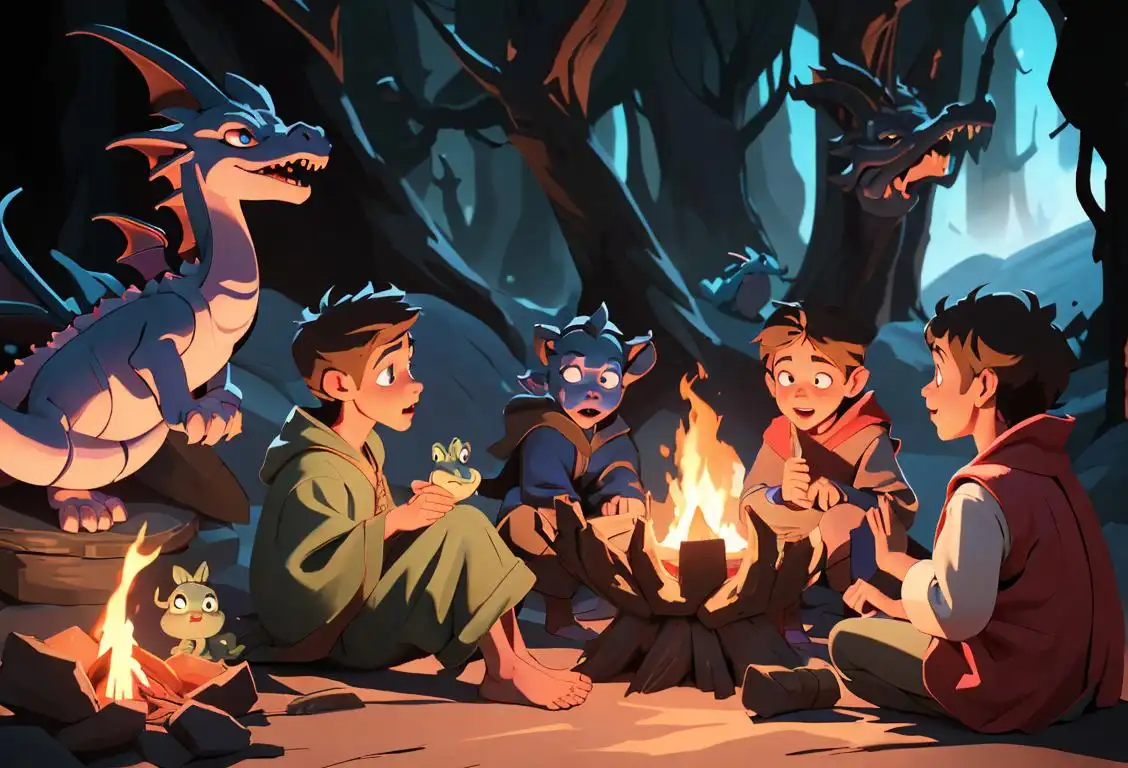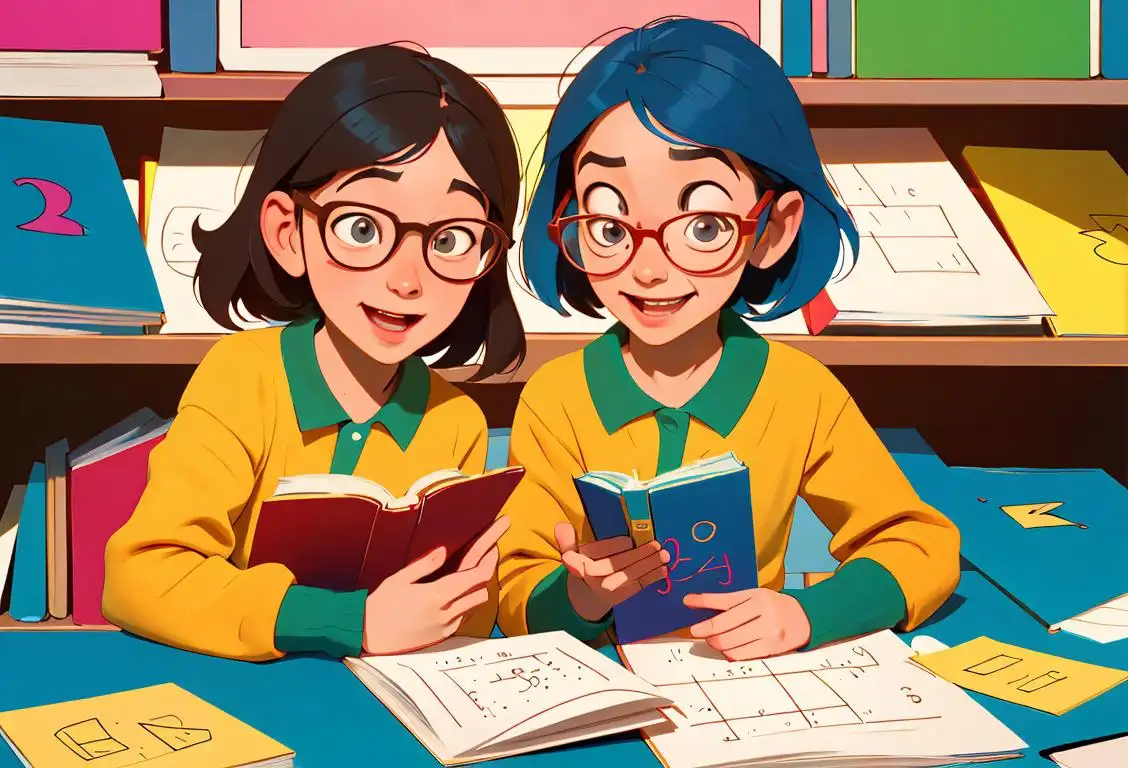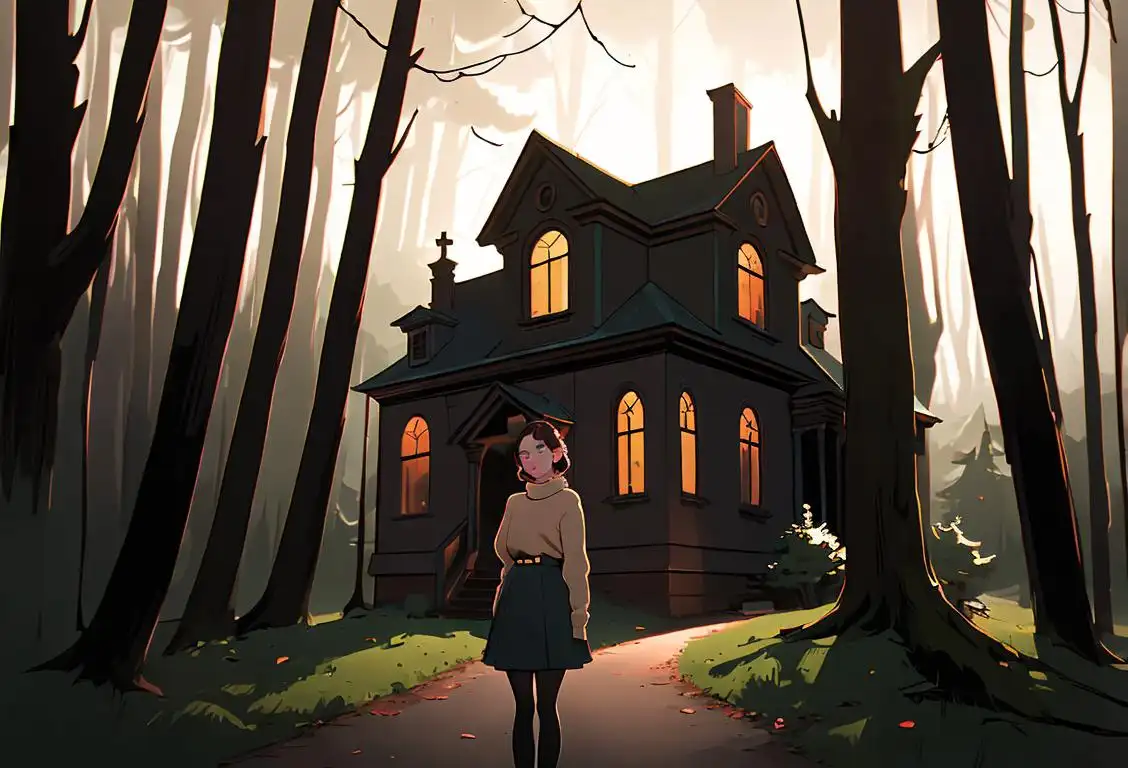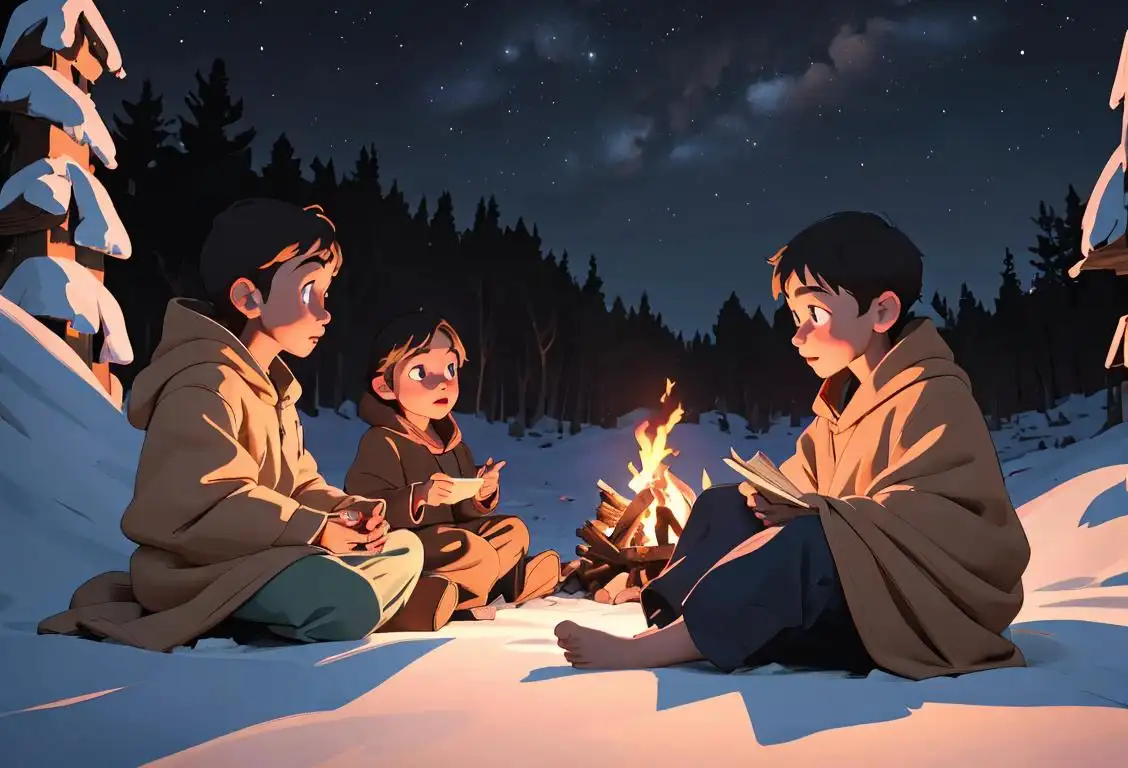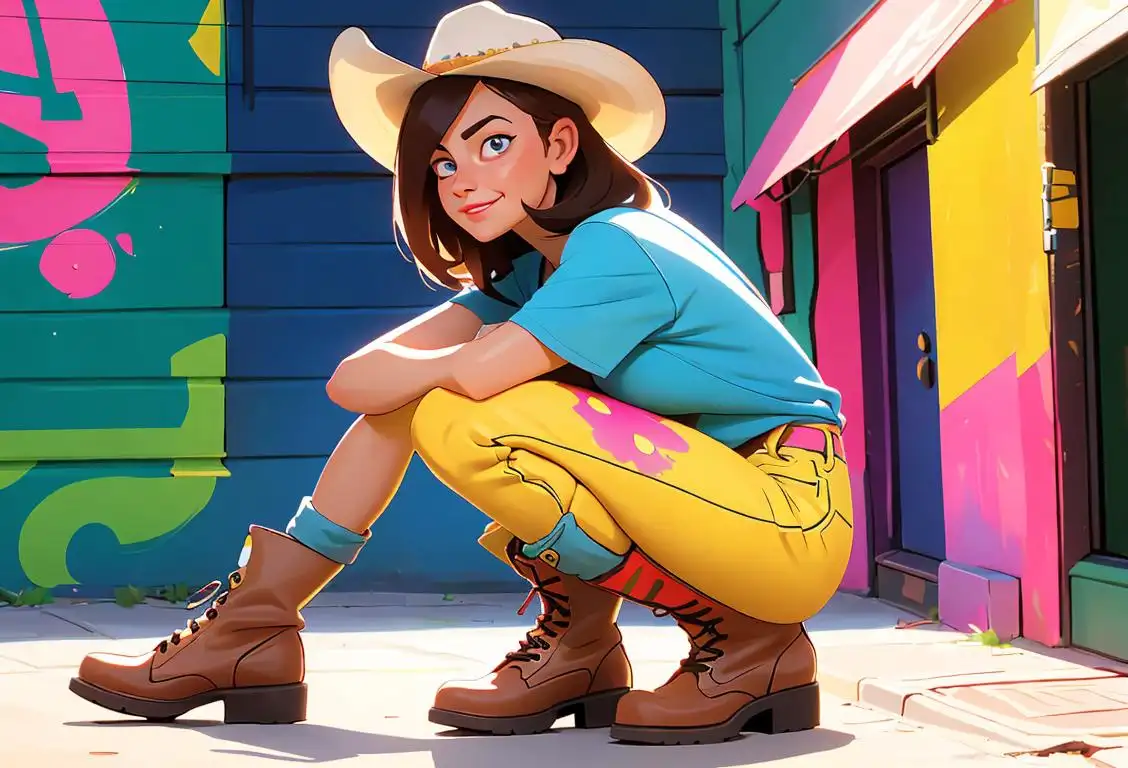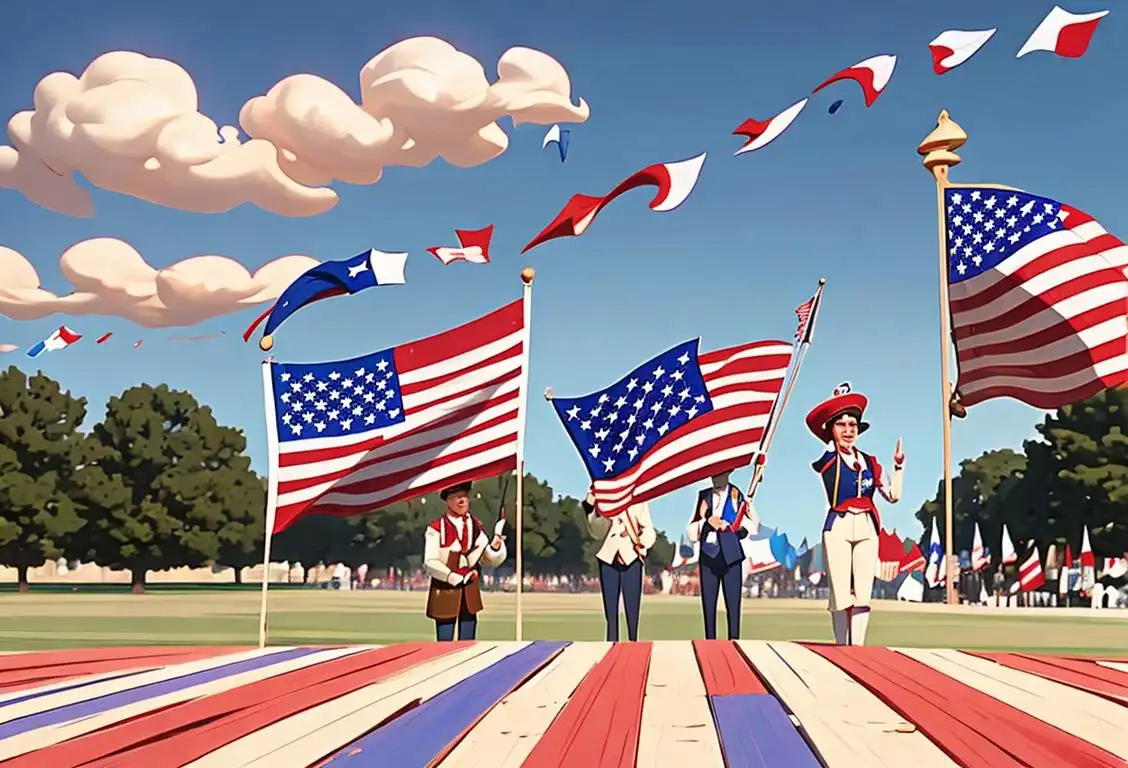National Horror Day
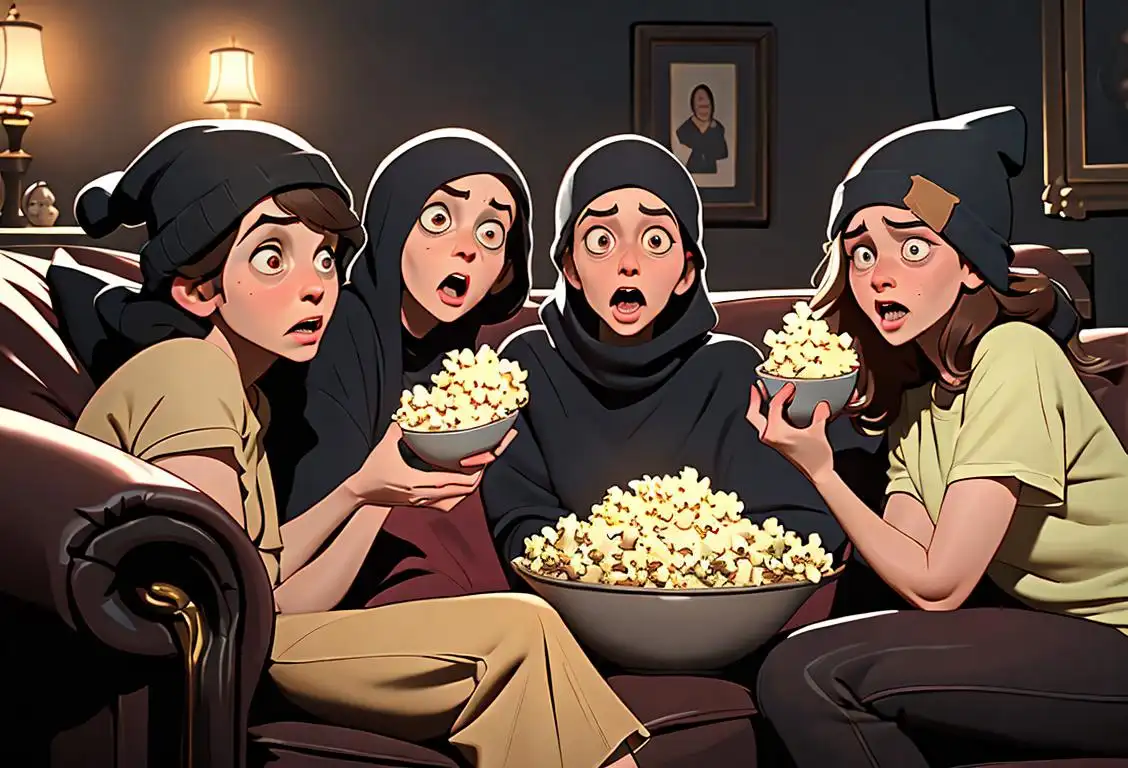
Has there been a chill in the air? Maybe some rustling in the shadows? Don't worry, it's not that your cats are up to their usual tricks. It's National Horror Day! And we promise, it's more fun than it sounds.
When is Horror Day?
It's national horror day on the 3rd January.
Boo-begone: National Horror Day
On National Horror Day, we highlight those spine-tingling tales that make our hairs stand on end, and our palms a little sweaty. The creepier, the better! This day is all about celebrating the thrill of the scare, if that's something that makes your heart race. With only 17 mentions online as of now, it's definitely the day for the brave-hearted. But hey, the more obscure, the spookier, right?
Crank up the Horror Meter
The most mentions of National Horror Day were, spine-chillingly enough, on January 3, 2018. What makes that date so eerie? Well, we're not quite sure, but it sure does raise a ghostly eyebrow or two. Perhaps the thrill-seekers decided to start their year with a frightful bang! So why not pop on that horror movie you keep putting off or delve into Stephen King's latest chiller? Conquer the ghostly befuddlement that is National Horror Day.
Creepy Can Be Fun!
Horror isn't just about being afraid; it's about storytelling, suspense, and creating an atmosphere more charged than your uncle’s dad jokes at Christmas dinner. National Horror Day is the perfect time to explore this spooky and exciting genre. So huddle up on the couch, grab the popcorn, and get ready to jump - it's going to be a thrilling ride!
History behind the term 'Horror'
18th century
The birth of horror as an emotion
The term 'horror' derives from the Latin word 'horrere,' meaning 'to shudder' or 'to bristle with fear.' In the 18th century, writers began using the term to describe a feeling of intense fear or disgust. This marked the birth of horror as an emotion that could be evoked through various forms of art.
1764
Origins in Literature
The term 'horror' first emerged in 1764 in the context of literature. It was used to describe a genre of writing that aimed to invoke a strong feeling of fear, dread, and revulsion in readers. One of the earliest notable works in this genre was 'The Castle of Otranto' by Horace Walpole, which is often considered the first gothic novel.
12th Century
Etymology of Horror
The term 'horror' finds its roots in the late 12th century from the Old French word 'horreur' and the Latin word 'horror', both meaning 'a trembling or shuddering'. Initially, the word was primarily used to describe a physical sensation of fear or repulsion.
19th Century
Expanding Genre
In the 19th century, the genre of horror expanded significantly. Influenced by the gothic tradition, authors such as Mary Shelley with her iconic novel 'Frankenstein', Edgar Allan Poe with his macabre tales, and Bram Stoker with 'Dracula' contributed greatly to the popularization of horror literature. These works explored themes like the supernatural, monsters, psychological terror, and the macabre, captivating readers with their dark and eerie narratives.
1764
The emergence of Gothic fiction
In 1764, Horace Walpole's novel 'The Castle of Otranto' was published, often considered the first Gothic novel. This marked the beginning of a literary movement that aimed to evoke feelings of horror and terror through supernatural elements, suspenseful plots, and atmospheric settings.
18th Century
Horror as a Literary Genre
In the 18th century, the concept of horror expanded beyond its physical connotations and became associated with the realm of literature. The Gothic novel movement, popularized by authors like Horace Walpole, introduced chilling tales of supernatural elements, suspense, and terror. These stories often featured haunted castles, monsters, and eerie atmospheres, capturing the readers' imagination and feeding their appetite for horror.
19th century
Horror in early cinema
During the 19th century, the invention of cinema allowed filmmakers to bring horror stories to life on the silver screen. One notable example is Georges Méliès' 1896 film 'The Haunted Castle,' considered one of the earliest horror films. This era laid the foundation for the future of horror in film.
19th Century
Birth of Psychological Horror
The 19th century witnessed a shift towards psychological horror, exploring the depths of the human mind and its fears. Writers like Edgar Allan Poe and his macabre tales, such as 'The Tell-Tale Heart' and 'The Fall of the House of Usher', delved into madness and the darker aspects of the human psyche, creating a new subgenre within horror literature.
Early 20th Century
Horror in Film
The early 20th century marked the emergence of horror in the world of film. In 1910, the first known film adaptation of 'Frankenstein' was produced by Thomas Edison's film company, paving the way for more horror movies to come. With the advent of sound in cinema, iconic horror films like 'Dracula' (1931) and 'Frankenstein' (1931) gained immense popularity, introducing unforgettable characters like Count Dracula and Frankenstein's monster to a wider audience.
1886
Publication of Robert Louis Stevenson's 'Strange Case of Dr. Jekyll and Mr. Hyde'
Robert Louis Stevenson's novella 'Strange Case of Dr. Jekyll and Mr. Hyde' was published in 1886. This influential work of literature explored the duality of human nature and the horrors that can emerge from within. It further popularized the themes of psychological horror and the fear of the unknown.
1950s-1960s
Rise of Modern Horror
The 1950s and 1960s witnessed the rise of modern horror in both literature and film. Influenced by societal changes, horror became not only a means of entertainment but also a reflection of cultural anxieties. Authors like Shirley Jackson ('The Haunting of Hill House') and Richard Matheson ('I Am Legend') explored psychological horror and the unknown, while famous directors like Alfred Hitchcock revolutionized the horror film genre with classics like 'Psycho' (1960) and 'The Birds' (1963).
20th Century
Horror Movies Rise
With the advent of cinema, horror found a new medium to terrify audiences. The 20th century saw the rise of iconic horror films like 'Nosferatu' (1922), 'Psycho' (1960), and 'The Exorcist' (1973). These movies not only provided spine-chilling entertainment but also introduced groundbreaking special effects and storytelling techniques that shaped the future of the genre.
21st Century
Horror in Pop Culture
In the 21st century, horror has become an integral part of popular culture, expanding beyond literature and film. Horror-themed video games, television series like 'American Horror Story,' and immersive haunted attractions have gained immense popularity. The genre continues to evolve, blending elements of horror with other genres such as comedy ('Shaun of the Dead') and social commentary ('Get Out'), proving its enduring relevance and creativity.
Late 20th Century
Horror in Pop Culture
During the late 20th century, horror became deeply ingrained in popular culture. The genre expanded beyond literature and cinema, influencing various art forms, including music, video games, and television. Horror icons like Michael Myers ('Halloween'), Freddy Krueger ('A Nightmare on Elm Street'), and Jason Voorhees ('Friday the 13th') became household names, and horror franchises gained a dedicated fan base. This era also saw the rise of psychological horror films like 'The Shining' (1980) and 'The Blair Witch Project' (1999), creating new sub-genres within horror.
20th century
Horror in film and the birth of iconic monsters
The 20th century witnessed a significant rise in horror films, with classics such as 'Nosferatu' (1922) and 'Frankenstein' (1931) showcasing iconic monsters that became cultural icons. These films not only terrified audiences but also paved the way for the development of horror as a distinct genre in cinema.
1960
Alfred Hitchcock's 'Psycho'
In 1960, Alfred Hitchcock's film 'Psycho' shocked audiences with its intense suspense and unexpected twists. It not only revolutionized the horror genre but also challenged societal norms by introducing a terrifying antagonist who appeared ordinary and relatable. 'Psycho' marked a turning point in horror cinema, influencing future filmmakers and shaping the genre's direction.
Present
Continued Popularity and Evolution
Today, horror remains an influential and popular genre. It continuously evolves, adapting to contemporary fears and societal changes. The success of films like 'Get Out' (2017) and 'Hereditary' (2018) demonstrates that thought-provoking and socially relevant horror narratives can captivate audiences. Furthermore, the horror genre has found success in unconventional formats, such as found footage films and anthology series like 'American Horror Story.' With its ability to tap into universal fears and offer thought-provoking narratives, horror continues to both terrify and captivate audiences in the modern era.
1978
John Carpenter's 'Halloween'
John Carpenter's 'Halloween' released in 1978, introduced the concept of the 'slasher' subgenre, a horror film characterized by a relentless and often masked killer. It became a massive success, paving the way for numerous sequels and inspiring a wave of slasher films that dominated the horror genre in the 1980s.
21st century
The resurgence of supernatural horror
In the 21st century, supernatural horror films experienced a resurgence in popularity. Movies like 'The Conjuring' (2013) and 'Get Out' (2017) captivated audiences with their blend of psychological terror and supernatural elements. These films pushed the boundaries of horror and showcased the genre's ability to explore societal issues and cultural fears.
Did you know?
Did you know, the first recorded horror story was 'The Epic of Gilgamesh' from ancient Sumer, containing tales of a terrifying flood sent by gods?Tagged
thrill fear storytelling suspense horror genreFirst identified
3rd January 2018Most mentioned on
3rd January 2018Total mentions
17Other days
Horror Day
Tell A Fairytale Day
Tell A Story Day
Math Storytelling Day
Paranormal Day
Story Day
Bs Day
Memorial Day
Heroes Day
Flag Day
